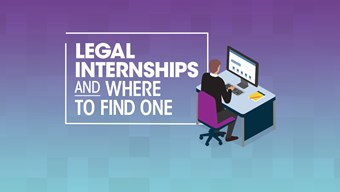Stepping into a new environment is never easy. This Neurodiversity Celebration Week, we spoke to some of our staff and student community about how we support neurodivergent students during their transition into the University.
By April Baniqued. Published 18 March 2024.
Our Student Voices
We spoke to two of our neurodivergent students to hear their experiences entering university life and understand how we’ve helped them with their journey.
How has your transition to the University been as a neurodivergent student?
Aaron Speak (LLB (Hons) Law, Manchester campus)
Before starting at the University, I met with Jason on campus to familiarise myself with the campus and the University experience. As a neurodivergent student, there was a huge amount of anxiety around the transition which Jason understood better than anyone. Without his support, my transition would have been a far greater struggle.
Phoebe Wright (LLB Law, Online campus)
Rachel Ryan and Simon Hale-Ross both have ADHD and have really helped me with study techniques.
Rachel was the first person I ever talked with regarding my studying and what I found difficult before I even knew I had ADHD. She was there for me right from the start and supported me through my diagnosis.
Our Support Services
We ensure each student is given every support they need to succeed on their course. Here are some valuable insights and advice from our team.
Is the University an inclusive place to learn?
Rachel Ryan (Senior Law Lecturer, Online Campus)
The online campus is wonderfully diverse. We have a whole campus approach to inclusion, which means creating a safe and positive environment for all students to learn and thrive in.
This is especially important for neurodivergent students who may have experienced segregation from their peers through numerous interventions in mainstream education. This can make people feel as though they are “less than” and not equally valued members of the community, or even part of the community at all.
We promote the many strengths that neurodiversity brings.
Jason Luxemburg (Disability and Inclusion Advisor, Manchester Campus)
We treat students with equity, rather than treating them differently, in that the needs of each disabled student, whether they are neurodivergent or not, are assessed and supported on an individual, case-by-case basis.
Every student is different from the next – not all autistic people are the same, for example, despite them sharing the spectrum.
We ensure that students have the adjustments and support that they need to succeed in their course and beyond.
Simon Hale-Ross (Senior Law Lecturer, Online Campus)
You will be well-catered for, supported by students and staff alike.
I can safely say I’ve never worked at such a happy higher education institution before. This is simply because I can say, with hand on heart, that our students come first. Students are at the centre of everything we do.
What happens when a neurodivergent person comes to see you for assistance?
Dan Lovesey (Disability and Inclusion Advisor, Manchester Campus)
Whilst privacy, dignity and a person-centred approach are central parts of the work we do, the next steps can depend on what the person is looking at getting from contacting us.
For some, they suspect they are neurodivergent and they may want advice about how to get a diagnosis, for others they may have a diagnosis and wish to talk about adjustments for exams or on the course.
Ultimately as a team, we only share information with lecturers and other teams in terms of what the student wants us to share.
Jason
The process often starts with the student sharing their diagnosis with us.
The diagnosis is only shared with the Disability & Inclusion Service unless a student chooses to share their diagnosis with other colleagues.
From there, we will request suitable evidence (like an autism diagnostic assessment), or we will refer students to an educational psychologist where they are seeking a diagnosis of a specific learning difference (SpLD).
Upon receipt of evidence, we will discuss the student’s needs with them, either via e-mail, phone call or a face-to-face meeting.
Following an agreement on the reasonable adjustments, these will be disseminated to the relevant teams (like the Assessments Office), although this is done confidential, without sharing the student’s specific diagnosis.
We encourage all eligible students to apply for Disabled Students’ Allowances. From there, you can continue to get ongoing advice and support from your assigned Disability and Inclusion Advisor, and you can always access support from other services, like the Wellbeing Service, Study Skills or Spectrum Life.
I would recommend pursuing a diagnosis, even if you aren’t looking for support or adjustments. Just knowing can be life-changing, and it gives you the language and knowledge to better understand who you are as a person and how you communicate to and with others.
What are the most important actions that help you daily?
Rachel
- Putting key dates on post-it notes.
- Writing to-do lists and matching tasks to where my concentration is highest/lowest.
- Listening to brown noise when I need a high level of concentration.
- Setting the timer on my phone 10 minutes before each event helps me focus on the current task and not worry about missing the next.
- Using an immersive reader for large pieces of reading so that I can listen and have words highlighted which uses less energy.
- I can retain more verbal information when I’m doing repetitive tasks like crocheting.
- I have a dopamine playlist on Spotify when my energy levels dip.
- I use a chair that enables me to sit in lots of different positions when working.
- Exercise helps especially lifting weights.
- Advocating for myself. For example, asking what the meeting will be about so I'm not using unnecessary energy trying to anticipate the topic.
Simon
- Waking up and staying up (not going back to sleep) and then making the bed. This gives me a sense of purpose.
- Making lists in priority format. This job is quite handy as I can think in terms of semesters, rather than years. This helps me shrink my world to a manageable size so I’m not too overwhelmed.
To learn more about how we can support you during your time with us, visit our Disability and Inclusion page.


